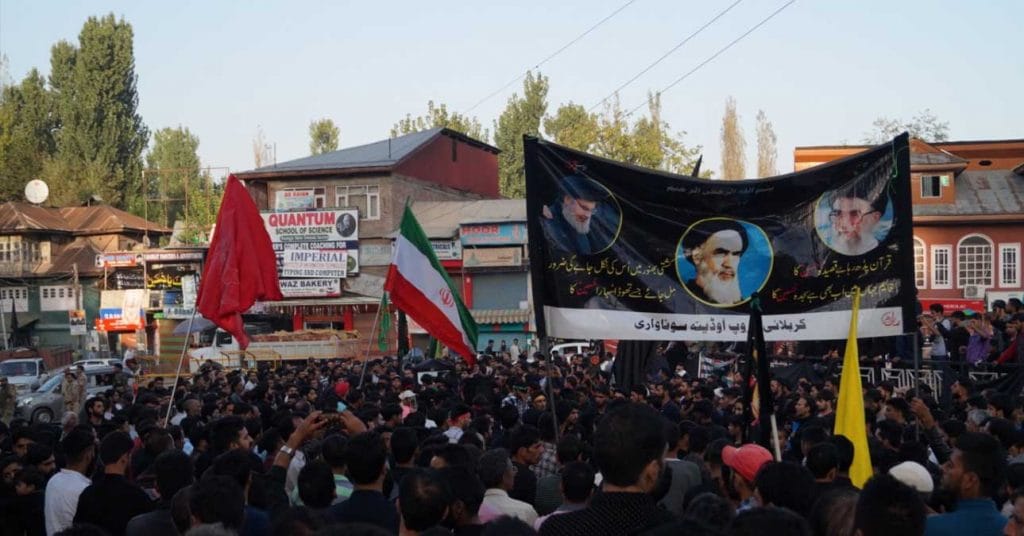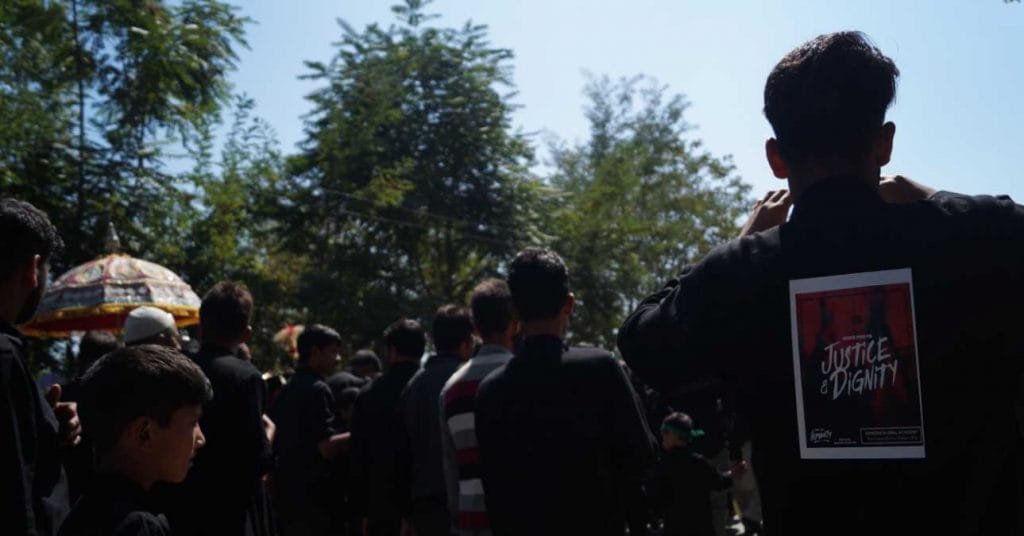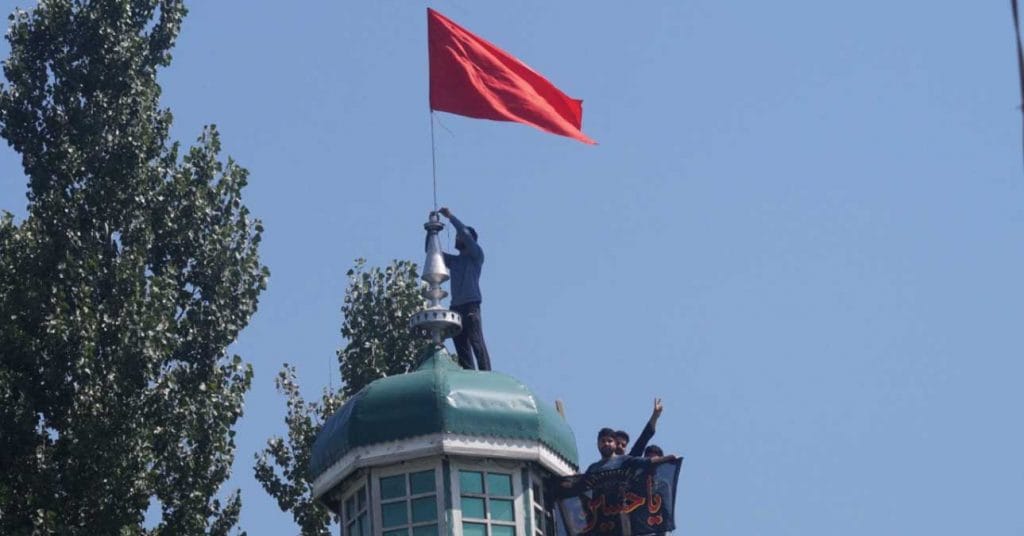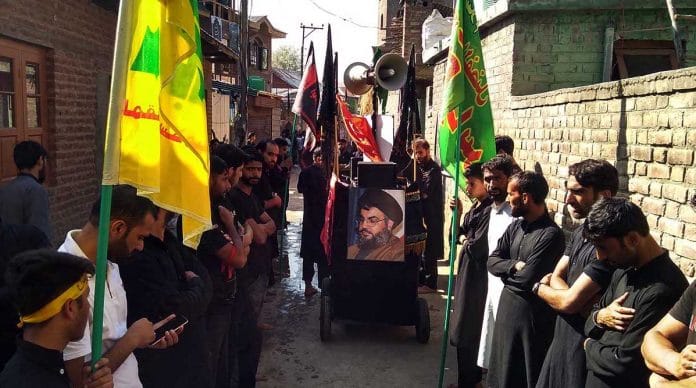There is a new ‘inspired’ narrative being built around the Shia community in Kashmir, especially after the abrogation of Article 370, as though they are supportive of New Delhi’s action. A recent article by Abhijit Iyer-Mitra says that the “Shias of Kashmir live in a state of relief and caution: relief at Article 370 being lifted, and caution that things won’t get any better for them”.
He writes about “cooperative stone-pelting” alluding to a tacit understanding between the Shias and the security establishment. A CRPF told Mitra: “They tell us the time they will come out to pelt so it never gets serious. ”
Nothing could be more untrue.
This mythology of cooperation doesn’t quite explain how scores of Shia mourners were injured when many Muharram processions turned violent on 6, 7 and 10 of September. The security forces teargassed the Shia procession and shot pellet guns. Is this “cooperation”?
Also read: After scrapping of Article 370, Shias in Kashmir are in a state of relief and caution
Muharram processions
To understand the Shia narrative about the scrapping of Article 370 and the overall Kashmir conflict, let’s take a closer look at the community. A common sight in almost all the Shia Muslim localities of Kashmir include these signs and images:
“Kullu yawmin ʿAshuraʾ wa kullu arzin Karbala (Every day is Ashura and every land is Karbala)”, portraits of Iranian supreme leader Ali Hosseini Khamenei, Ruhollah Khomeini, former Iranian president Ahmadinejad and Hassan Nasrallah, the founder of Lebanese Hezbollah with an AK-47.
There are more Iranian symbols than Indian or Pakistani in Shia localities. After the scrapping of Article 370 on 5 August, Shias put up more and more such banners, portraits, flags on houses, mosques, Imambaras, walls.

The commemoration of the 7th-century battle of Karbala in which Prophet Mohammad’s grandson Imam Hussain was killed along with his 72 kith and kin is a deeply ingrained event among Shia Muslims. However, Muharram processions were banned in the Valley after armed rebellion erupted in Kashmir in 1989. Since then, the Shia community takes out processions in government-designated routes in Srinagar, within the limits of certain localities. But after 5 August, most of the Muharram processions were not allowed.
“These processions is the manifestation of our resilience against cruelty,” a senior Shia preacher told me.
Hussain, a journalist from Budgam, said the government imposed a curfew on 9 September and sealed all the entries and exits of the town. “The resilience that we learned from Karbala made us leave our houses and commemorate the martyrdom of Imam Hussain,” he said.
Also read: Kashmir photojournalist hit with pellets, 3 others hurt while covering Muharram procession
Alienation
The Shias of Kashmir are not welcoming the Article 370 move either.
“If the Centre wanted to take any decisions in Kashmir’s favour, then why won’t they take us onboard for the decision? How can we trust any decision based on lies and treachery? It’s the same as Karbala in Kashmir,” a 40-year-old businessman, Parvaiz Ahmad, from Zadibal told me.
In Sufipora, people mostly work in the tourism industry. They work as porters, in hotels and restaurants in the nearby Pahalgam hill station.
“Before 5 August, we were fighting against elite families of Kashmir [the hoteliers] who have taken the forest land illegally and are making thousands of rupees out of it. Now we will have even stronger people establishing businesses and eroding our ecosystem,” Zulfqar Sheikh, a college student in Sufipora, said. The government’s move now allows others to buy land in Kashmir.
A senior Shia preacher from Pulwama told me that people have voted for different political parties earlier but any political activity has “ended in smoke” after 5 August. “No one can shoulder the mess the BJP has created in Kashmir.”
“This move has further alienated a common Kashmiri irrespective of their religion and sect,” a university student from Pulwama said.

Jinnah to Netanyahu
Kashmiri Shias are considered to be supporters of Pakistan because of Mohammad Ali Jinnah’s Ismaeli Shia roots. He is still revered among Shias of Kashmir. According to some, Shia Muslims had supported the “other side” during the 1947-48 and 1965 raids by Pakistan.
However, after Zia-ul-Haq led Pakistan groomed and protected anti-shia factions, the Shias of Kashmir started developing a soft corner for India. Saudi and US support for Zia’s regime against the Soviets in Afghanistan, consistent attacks on Shias in Pakistan made them anxious.
At the same time, the 1979 Iranian revolution and the Indian recognition of the new regime also garnered India some support from the Shias. Now, India’s close ties to Israel (remember Benjamin Netanyahu and Modi’s hugs) and US sanctions on oil from Iran has again changed the dynamics in Kashmir. The new India-Israel relationship hasn’t made the Shias feel very fond of India, or made them do “cooperative stone pelting”.

Also read: Modi has convinced the world Kashmir is India’s internal affair – but they’re still watching
BJP’s targets in Kashmir
Interestingly, the BJP tried to make inroads into the Shia Muslim vote bank, before and after the party broke away from the PDP coalition government last year.
Ram Madhav even tried to lure Shia voters in Kashmir by making promises like minority status to Shias, job reservations, demarcating a constituency, lifting ban on Muharram processions, a separate Shia Waqf Board and exclusive Hajj quota for the community. But it didn’t work.
As of now, all the three major leaders of Shias – Imran Raza Ansari (mainstream), Abbas Ansari (separatist) and Agha Syed Hassan (separatist) – are under house arrest.
So, don’t try and use Shias to polarise readers about what is really happening in Kashmir.







General Zia never supported anti-Shia factions. They emerged organically within Pakistan after 1979. Even ex R&AW chief B.Raman in his book “Kaoboys of R&AW” admitted this. Also worth mentioning, Zia decisively helped Iran against Saddam’s Sunni dominated Baathist secular army.
Looks like the author is a bit too eager ,maybe over-eager to make the point that shia are together with sunnis.
The truth is that shia want to be seen as friendly to the sunnis, out of fear, but they are more or less fence sitters.
Kudos to The Print! Mitra (Goebbels) who is writing on the orders of (Biryani) Doval gets exposed again. Seriously he should by now have been booked under relevant sections of IPC for promoting enmity between different communities.
Freedom of expression must be given preference in all counties.India and Pak have done it for their land so they should allow Kashmiri people also rather any community who ask for freedom.
Let Kashmiri people fight (Hindustan (India & Pakistan) did with British)for their land) till Kashmirs win.
It is their land, nether Indian nor Pakistani.
Okay. So everyone is angry and apparently shias want to join iran. Good for them. Frankly all this tells me is that much of the opposition in Kashmir is irreconcilable. The more i read reports from Kashmir, the Putin model for Chechnya looks most suited. Separate Jammu from Kashmir and then install a strongman leader ala Ramzan Kadyrov perhaps someone like Yasin Malik or Geelani can do the honors, grant the new entity autonomy with special provision for Sharia and forget about this hell hole. This would have the added advantage of saving money spent on a futile exercise of winning hearts and minds.
Whether it is Sunnis or Shias, the bitter truth is that they need to reconcile with the fact that the land called J&K+L on this side of the LOC is Indian territory, and the residents of this territory, including Hindus and Buddhists, are Indian citizens. Accepting the abrogation of Article 370 will be similar to allegiance to their motherland, which is INDIA. The other option is to go the Hong Kong way, and be prepared for the State’s coercive methods, whatever may be the end result. We all need to remember that it is Pakistan that’s the common enemy (because of its nefarious motives), for the mainland and the residents of Jammu, Kashmir and Ladakh. Jai Hind..
Yeah. Shias and Sunnis are in love with one another. Tell me more. If not convinced the author needs to visit our dear neighbor, where Shias are considered heretics worthy of slaughter.
Seems like the author is very anxious to convince his ISI bosses; to tell them ‘see! I even wrote an article too! Shias are on your side. Don’t believe Indian narrative’ Ha ha!
@vish and Raj ??
Thanks for exposing these lying paid corrupt fellows.
How about serious research as to the source of their pay masters.
There are pay masters from both the sides.Now only we need to identity them.
In Kashmir Shias and Sunnis are 100% together and both are against abrogation of Article 370.
This is the realty now anyone as said here, payed agents can change the narrative by writing articles or e.t.c
Recall that elderly gentleman, having an impromptu lunch on a street in Shopian, saying good naturedly, Arre Saheb, Khush toh yahaan kaun hai …
As if you were very honest in reporting the situation from Kashmir.